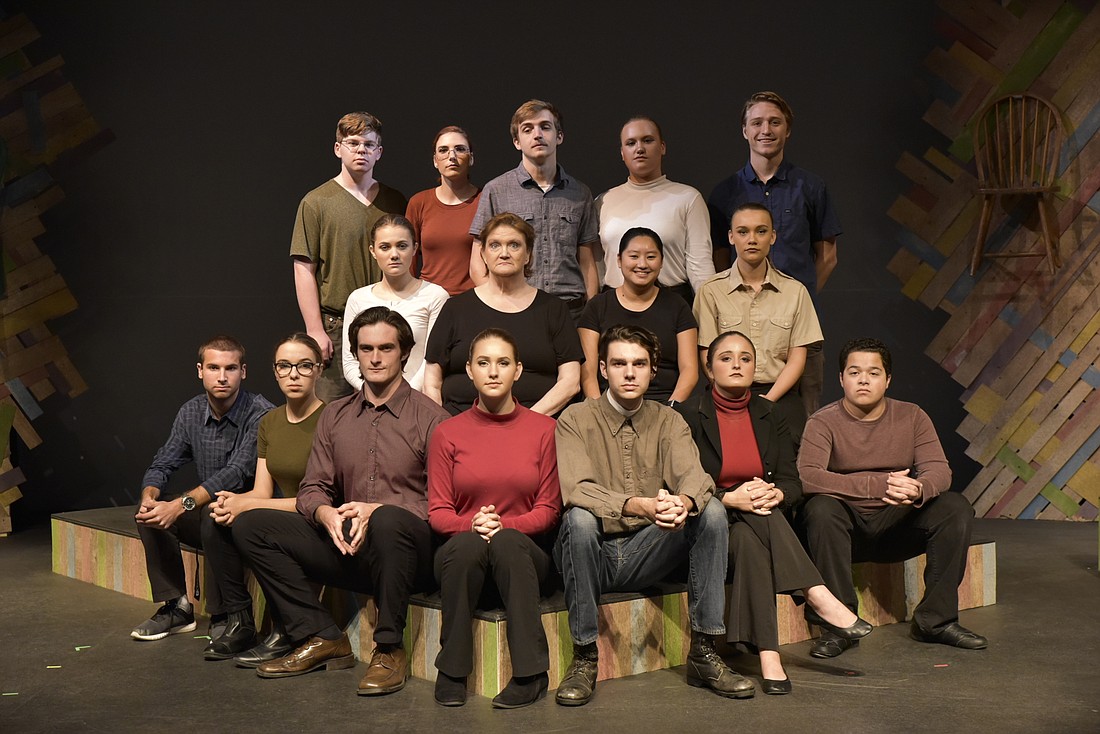- December 20, 2025
-
-
Loading

Loading

The State College of Florida recently staged “The Laramie Project” on the anniversary of the national nightmare that inspired the play. That might sound like a simple true crime story. But there’s nothing simple about this play. Yes, it’s the story of a crime. But it’s also the story of uncovering the truth.
The crime itself was horrific.
Matthew Shepard was an openly gay college student at the University of Wyoming in Laramie. On Oct. 6, 1998, he’d been drinking at a bar and needed to return to his school. Two local workers and part-time thugs gave him a ride in their truck. But Shepard never made it. Aaron McKinney and Russell Henderson drove Shepard to a remote location and viciously pistol-whipped him. At the end of the ordeal, they tied Shepard to a fence, took his money and his shoes, and drove away. The young man endured 18 hours of exposure on a cold night. A mountain biker finally found him, still clinging to life. Shepard survived the trip to the hospital, but remained comatose. He died on Oct. 12.
In the time frame of the play, the crime is in the past. The play looks back at the atrocity (and its impact on the community) from the standpoint of a unique investigative team. Here, a cadre of theater people, not detectives or reporters, are on the case.
In the real-life story behind the play, Moisés Kaufman led ten members of Tectonic Theater Project on a trip to Laramie to uncover the real story behind the Matthew Shepard attack.
This unlikely team recorded hundreds of Laramie residents shortly after the killing. At the end of the process, the playwright distilled their interviews, the journal entries of company members, and news reports. The resulting play is a montage of vignettes and snippets of unedited quotes. You get a glimpse of the hard work of honest, investigative reporting. But that’s never the focus. The play doesn’t pat itself on the back. The question of “How could someone do this?” is always the focus.
“The Laramie Project” leads up to the trial of McKinney and Henderson. But the town of Laramie is also on trial. The brutal crime became a national sensation. It focused America’s attention on LGBTQ rights. But it also focused attention — and judgment — on Laramie and its residents.
Theater folk aren’t the only outsiders in their small town. There’s a flock of reporters as well — asking harsh, intrusive questions — and then broadcasting the answers on the evening news. Laramie’s townsfolk feel the eyes of the nation on them. Some of them resent it.
In interview after interview, Laramie’s residents keep asking the students to be fair. Don’t portray us as a pack of redneck gay-bashers. These two monsters don’t represent our town.
McKinney and Henderson finally stand trial. They’re found guilty.
The town itself?
That depends on whom you ask.
Interviews reveal a spectrum of viewpoints. Some Laramie residents think the killers were inexplicable human mutations — others think they’re typical. Some residents change their attitudes toward LGBTQ people, others don’t.
The play fights to be fair to all of Laramie’s citizens. At the same time, it fights to tell the truth about the murderous homophobia behind the Matthew Shepard attack.
It succeeds on both counts. There’s no neat conclusion. But it’s as close to the truth as live theater can get.
Amanda Schlachter directed this powerful student production. Her approach is moving — but never deliberately emotional. “The Laramie Project” flows from the clear-eyed pursuit of objective truth. She honors the play’s unsentimental spirit. Schlachter’s not out to make you cry. She doesn’t have to. In this sad case, the facts alone are enough.